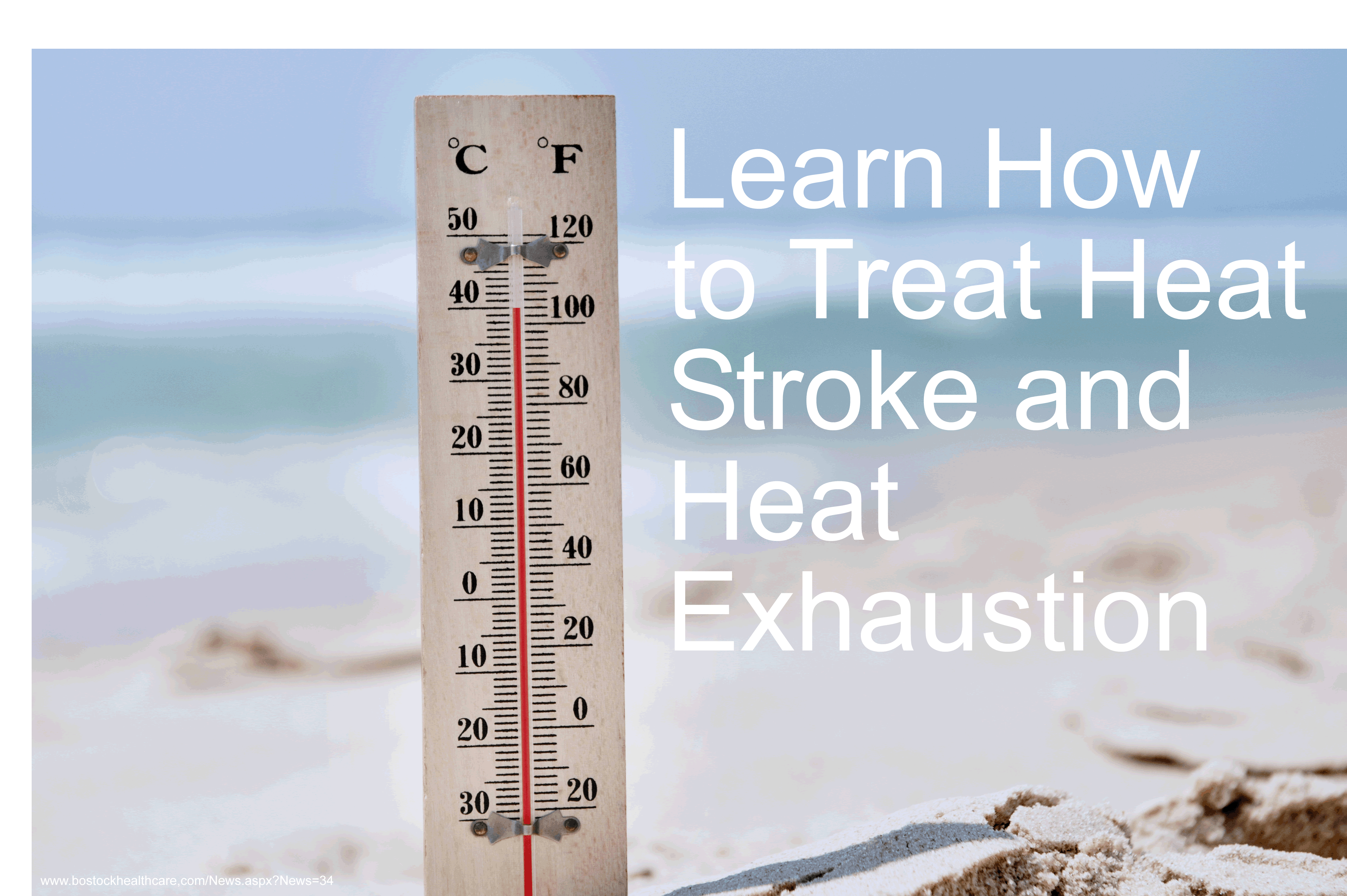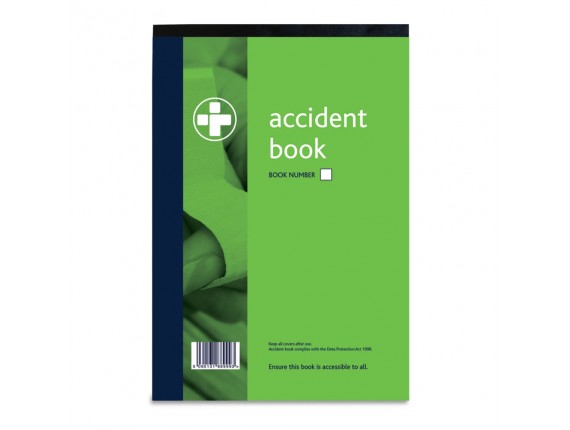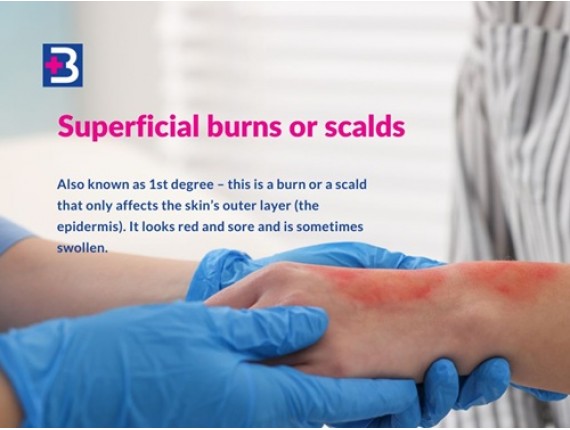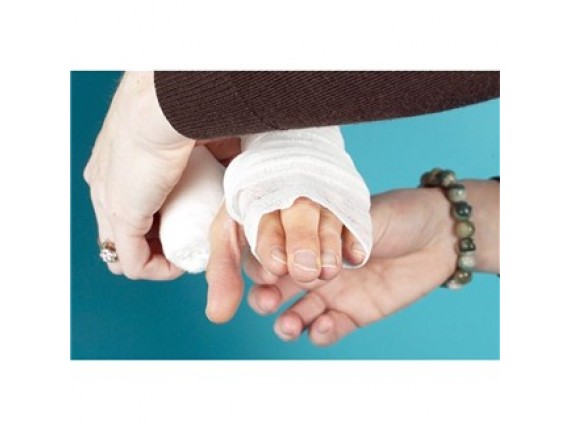Heat Stroke and Heat Exhaustion

Recognising and Treating Heat Exhaustion and Heat Stroke
Treating Heat Exhaustion and Heat Stroke
Heat exhaustion occurs following prolonged exposure to heat and is often caused by exercising in hot conditions. Heat exhaustion happens when the core temperature of the body rises above 38°C. This condition needs to be treated very quickly to prevent onset of heat stroke.
How can I Recognise Heat Exhaustion?
Possible signs include:
Confusion or dizziness
pale skin and sweaty skin
Nausea and vomiting
Fast weak pulse and fast weak breathing
Cramps
The casualty may say that they feel cold however they will be hot to touch.
Urgent thirst
How should I Treat Heat Exhaustion?
First take the casualty to a cool place
Loosen collars etc and remove excess clothing
Give the casualty plenty of water to drink
Cool their skin with a damp sponge or cloth and fan them
Stay with them until they start to feel better. They should start to cool down within 30 mins.
Keep an eye on the casualties levels of response and if they deteriorate place them in the recovery position, dial 999/112 and treat as heat stroke. If they do not recover from the heat exhaustion within 30 mins you should also dial 999/112.
What About Heat Stroke?
Heat stroke is a very serious condition. If you suspect heat stroke you should act quickly.
Once you have called 999/112 you should continue to cool the casualty and now is the time to start using cold water. Wrap the casualty in a cold wet sheet, sponge them with tepid water and fan the casualty, you could even spray the casualty with a hose.
If they fall unconscious move them into the recovery position - to find out how to do this why not book onto one of our first aid courses. Continue to monitor them until the ambulance arrives. Be prepared to resuscitate if necessary.
How to prevent heat exhaustion and heatstroke
Heat exhaustion and heatstroke can often be prevented by taking sensible precautions when it's very hot.
During the summer, check for heatwave warnings, so you're aware when there's a potential danger. The government uses a system called Heat-Health Watch to warn people about the chances of a heatwave.
Stay out of the heat
Keep out of the sun between 11am and 3pm.
If you have to go out in the heat, walk in the shade, apply sunscreen and wear a hat and light scarf.
Avoid extreme physical exertion.
Wear light, loose-fitting cotton clothes.
If you're travelling to a hot country, be particularly careful for at least the first few days, until you get used to the temperature.
Cool yourself down
Have plenty of cold drinks, and avoid excess alcohol, caffeine and hot drinks.
Eat cold foods, particularly salads and fruit with a high water content.
Take a cool shower or bath.
Sprinkle water over your skin or clothing, or keep a damp cloth on the back of your neck.
If you’re not urinating frequently or your urine is dark, it's a sign that you're becoming dehydrated and need to drink more.
Keep your environment cool
Keep windows and curtains that are exposed to the sun closed during the day, but open windows at night when the temperature has dropped.
If possible, move into a cooler room, especially for sleeping.
Electric fans may provide some relief.
Turn off non-essential lights and electrical equipment, as they generate heat.
Keep indoor plants and bowls of water in the house, as these can cool the air.
In the longer term, it can help to have your loft and cavity walls insulated, as this will keep the heat in when it's cold and keep it out when it's hot. Using light-coloured, reflective external paint on your house may also be useful.
Look out for others
Keep an eye on isolated, elderly, ill or very young people and make sure they are able to keep cool.
Ensure that babies, children or elderly people are not left alone in stationary cars.
Check on elderly or sick neighbours, family or friends every day during a heatwave.
Be alert and call a doctor or social services if someone is unwell or further help is needed.



